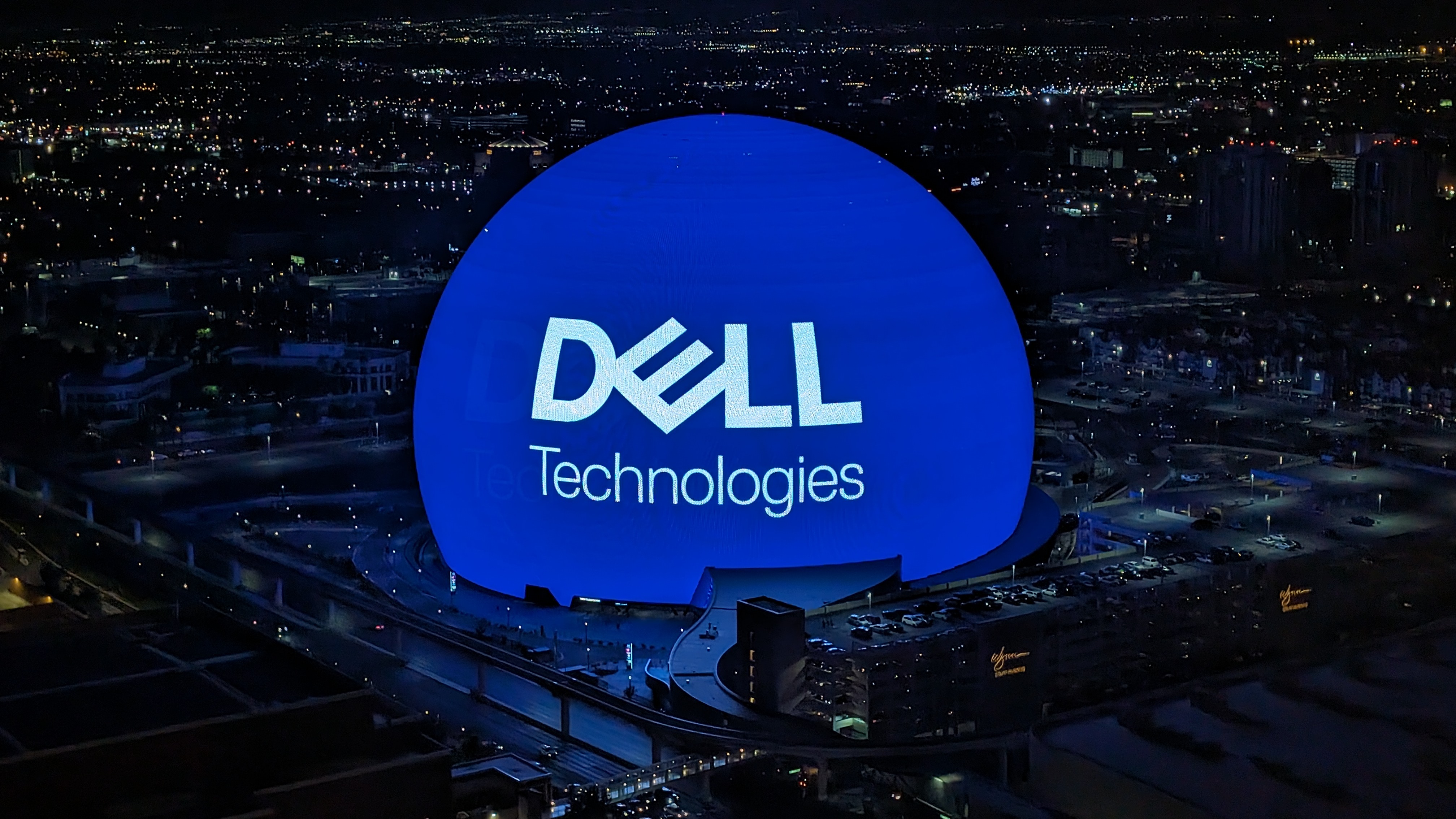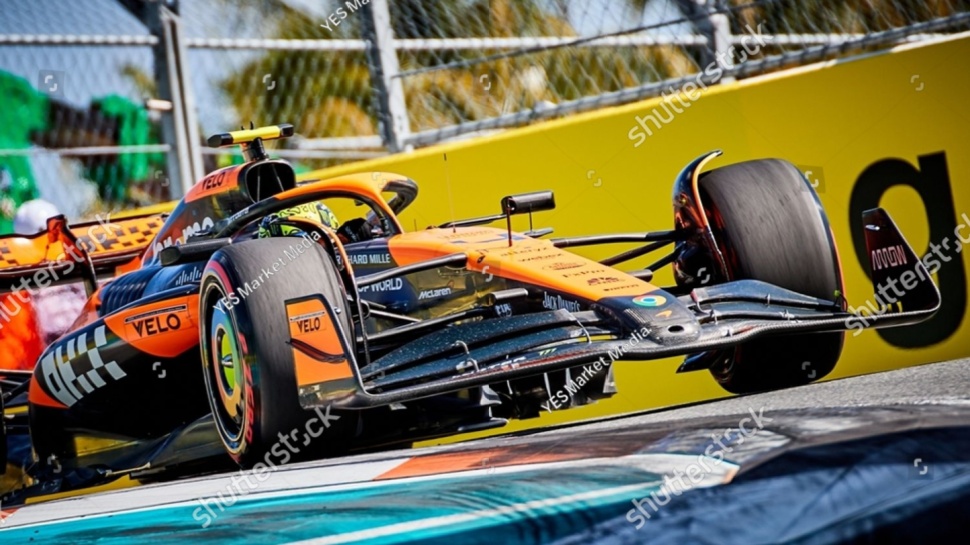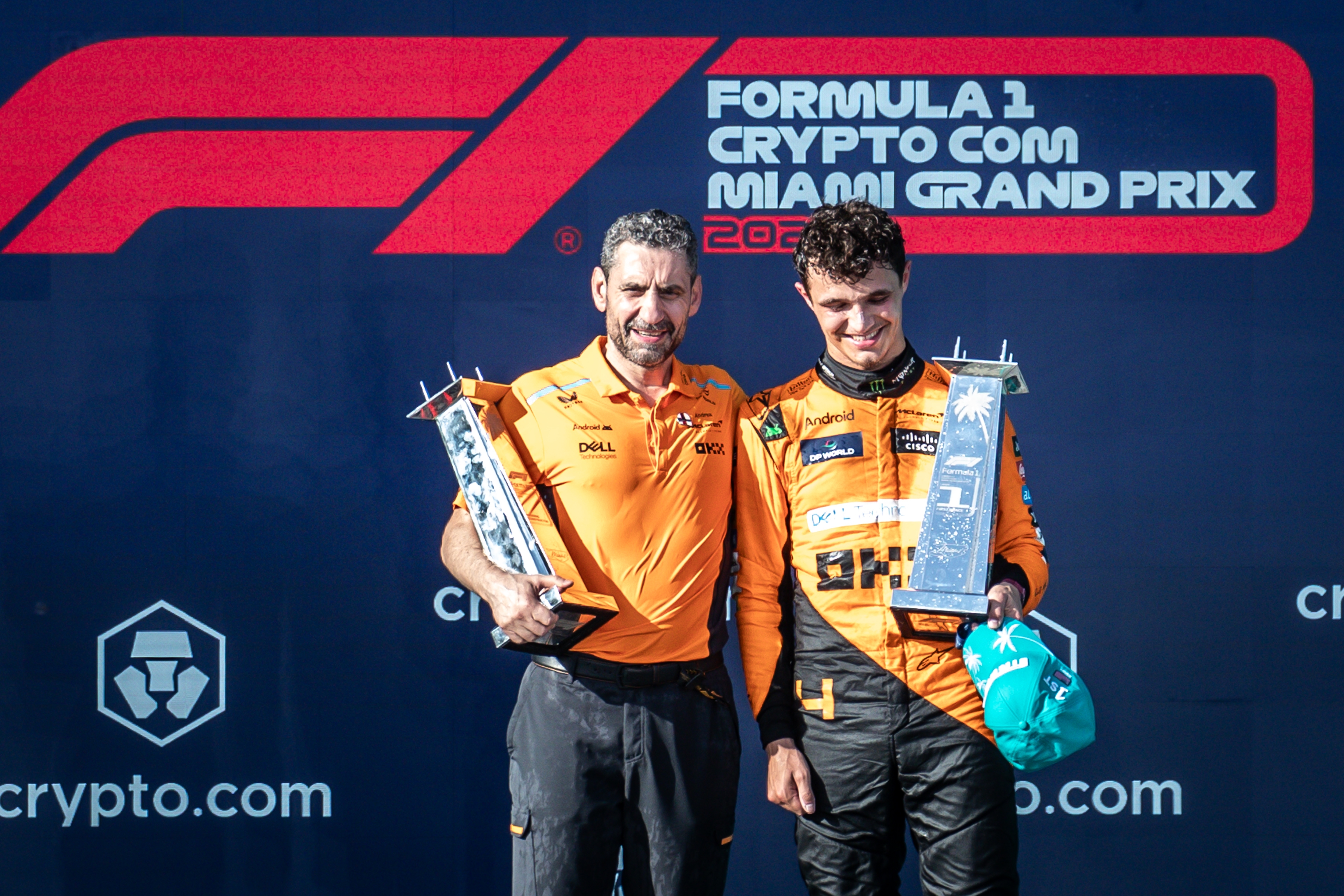
In the world of Formula 1, where tenths of a second can be the difference between victory and coming second, having any extra edge is vital.
With strict restrictions on how much money the sport’s teams can spend on everything from testing to team members at every race weekend, technology has increasingly looked to help teams such as McLaren fight for every point.
Fresh from taking its first win of the season after Lando Norris’ triumph at the recent Miami Grand Prix, we spoke to the team at Dell Technologies World 2024 to find out more on its technology capabilities, AI, and just what the future of the sport could look like.
The engine behind technology
"You're driven by the push to succeed,” Daniel Keyworth, Director of Business Technology, at McLaren, told us at Dell Technologies World 2024.
“The gap between first and last is probably as tight as it’s ever been - some of that has been through levelling the playing field around regulation change, both financial and technical.”
“Technology plays a huge part - everything we do is underpinned by technology…it’s probably the most technologically advanced sport on the planet.”
Keyworth says although the team has been a Dell partner since 2018, it had actually been a customer for long before that, noting, “quite simply, we’re wall to wall Dell.”
“We use a phrase that we’re never more than a metre or millisecond away from a piece of Dell Technologies,” he adds, “and in my view, that’s only getting closer and faster all the time, particularly in this AI era, where they’re going to be the kind of engine behind that technology set.”

This isn’t just limited to using Dell laptops or edge devices, as Keyworth notes the team takes a Dell "micro data server" containing all of its compute, storage and network infrastructure to the garage every race weekend, wherever they may be in the world.
And with over 300 sensors on the car delivering real-time analysis (in an earlier keynote, McLaren F1 CEO Zak Brown claimed 1.5 terabytes of data was being generated over a race weekend), the need to extract data from the car as quickly and effectively as possible is paramount, with information being streamed back to McLaren HQ in Woking, England for extra analysis, which can be the difference between winning a race and finishing second.
“It can be quite a hostile location in the garage,” Keyworth notes, “yes, you’ve got all the data in front of you, but it’s great to have that confident voice back home.”
Formula 1 also imposes freight limitations on its teams concerning the amount of kit they can take to each race weekend, so the need for a compact yet powerful setup is crucial, and Dell provides McLaren with an edge core cloud setup, giving more capability back at the core, moving into the cloud only when needed.
“If you’ve seen the progress we’ve made over a year, we haven’t been in a small iteration phase, we’ve been in a step change,” Keyworth notes.
Describing the car on track as “a six month snapshot of what we’ve been working on,” Keyworth also highlights the team’s use of Dell’s HPC suite to power its CFD (computational fluid dynamics) simulation process, creating a full digital twin of the car for initial testing - which can later be compared to live data from a test session or a race weekend to see how the car is actually performing.
The AI impact
This need for extra insight and analysis to gain any kind of edge opens the door for the increasing use of AI, which is set to play a huge role in Formula 1 going forward, Keyworth notes.
“We’re taking a broad view on it - we recognize that when it comes to all parts of the team, the more efficient they can be can help us all drive towards a single goal,” he says, “it’s about making all functions world-class.”
Formula 1 teams are limited by a cost cap across all their work and development, including technology spending, so is there a way for AI to help take some of the heavy lifting away from human workers?`
“You can’t have a huge team of data scientists, you want a really focused and bespoke crew that are working on your entire AI toolset,” Keyworth notes, adding the team has “quite a good labor base already” when it comes to AI skills.
“If you’re too focused on the result, the result may never come - it’s all about what are the things that contribute to that result.”

That being said, the cost caps mean that McLaren is “quite pro open source”, Keyworth adds, especially when it comes to using free AI models to create the base of a model, or some kind of component in its “AI factory”. This is a Dell offering which specifically tailors hardware according to customers needs, with McLaren utilizing a huge amount of the company’s APEX products, which can scale when needed.
"With the emergence of AI, we don't really know what the top end limit is when it comes to data storage and data retention,” Keyworth adds, “so having the ability to burst and scale can be huge for us.”
But he admits the amount of excitement around AI innovation means getting support from the team in exploring the technology, especially in its IT operations, is fairly straightforward.
“It's about where does (the team) want to invest their money…it's a business decision those teams need to make,” Keyworth says, “You need to take people on a journey and educate them on what (AI) really is…the reality is that it’s there to drive a business outcome of some description, so getting people refocused on just, what does this thing do, has been a really important journey for us.”
“What we can see in our early journey around elevating our AI strategy is that it has a huge amount of potential, therefore whoever chooses to invest in it, will likely prevail as a stronger team.”

Moving forward, Keyworth admits that his role is slightly privileged, with Formula 1 being an incredibly technologically advanced sport, meaning his requests for investment or support often get heard quickly.
"It's a good problem to have,” he laughs, “there’s a huge focus on technology investment, and that'll be a continuing trend.”
“It’s not difficult to get a seat at the table and to get a business case of investment around technology for consideration, because people see a huge amount of value in it - the sport has come from a place where you could just throw money at the problem, but now you have to run it like a proper business, and therefore it’s like the business case for delivering technology has a return on investment - so it speaks for itself.”
- These are the best free office software choices we've found







